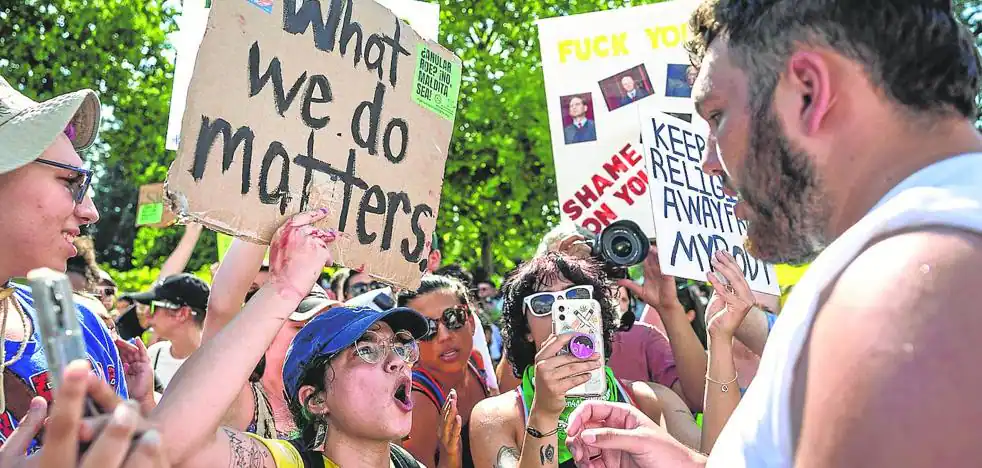According to German political scientist Georg Masala, Russian President Vladimir Putin currently sees no reason for negotiations with Ukraine. The Kremlin chief will only start negotiating seriously if he fears he will lose more than he gains if the war continues, says the international politics professor, who contradicts the claim that NATO was partly responsible for the war in Ukraine.
“It works for him. That is why there is no incentive whatsoever to participate in these negotiations,” Masala, professor of international politics at the Faculty of Political and Social Sciences at the University of the Bundeswehr in Munich, told dpa.
According to Masala, the most recent military successes of the Russian army in the Donbass can be traced back to two causes: on the one hand, the Ukrainians do not have heavy weapons, on the other hand, the Russians have successfully changed their strategy. “Unlike the previous course of the war, they are no longer advancing on wide areas of the front, but are concentrating their troops to advance on small areas of the front. As a result, they currently have a personal superiority.”
Ukraine plans counter-offensive in June
The question now arises for Ukraine as to whether it will give up certain areas (which President Volodymyr Zelenskyy alluded to, note), otherwise there is a risk of troops being surrounded there and possibly becoming prisoners of war. In concrete terms, this concerns the city of Severodonetsk, for example. “If the Russians take this city, they will have almost complete control over Luhansk Oblast,” Masala said. Decisive for the further course of the war is now the success of the counter-offensive announced by Ukraine for June.
To improve Ukraine’s prospects, Masala therefore advocates the supply of heavy weapons. “You have to change Putin’s cost-benefit calculations,” he says. If the negotiations actually took place at some point, they would be extremely difficult. “This is simply because Ukraine does not want to give up territory and the Russians do not want to withdraw from Ukraine. Therefore, these negotiations will accompany us for a long time to come. The truces will be very unstable, the fighting will flare up again and again. This is not a two or three week process.”
Selenskyj has already made it clear that any negotiating result must be approved by the population in a referendum. “Because otherwise it is not resilient. Then it will end in chaos,” Masala warned.
Putin’s position is not in danger at the moment
Masala does not believe that Putin depends on success for his political and perhaps physical survival. “At the moment it is like this: Putin is waging a war that will cost Russia high economic costs, and nobody is standing in his way. So the internal power system seems stable. Moreover, Putin can use the state propaganda apparatus to internally do many things like victory I don’t think his position is in jeopardy.”
One can only speculate about Putin’s current war goals. “We don’t know whether it is enough for him to seize the Donbass and the land bridge to Crimea from Ukraine – which corresponds to 15 to 20 percent of the territory of the Federal Republic of Germany – or if he wants more. He has announced more. ” There is speculation that Putin wants to carry out attacks again from the consolidated Donbass on the capital Kiev.
Ukraine is receiving military aid from the West, but Putin has not fired his gun yet either. For example, he could declare a state of war and then order a general mobilization. “He won’t back down,” Masala said, “but he still has options.”
NATO has not surrounded Russia
Masala does not agree with the claim that NATO has surrounded Russia and is partly responsible for the war in Ukraine. He refers to the Baltic states, which share a border with Russia. “I don’t think you can speak of circling there,” he said on Saturday. In addition, Norway also has a border with Russia – if you include the Russian enclave of Kaliningrad, Poland also borders the country.
Also in the 1997 NATO-Russia Basic Treaty, the defense alliance pledged not to station nuclear weapons, headquarters or substantial combat units on the territory of its new members. “NATO stuck to it until 2022,” Masala said. Even after the annexation of Crimea in 2014, great care was taken to ensure that Crimea was not violated.
Source: Krone
I’m Wayne Wickman, a professional journalist and author for Today Times Live. My specialty is covering global news and current events, offering readers a unique perspective on the world’s most pressing issues. I’m passionate about storytelling and helping people stay informed on the goings-on of our planet.



